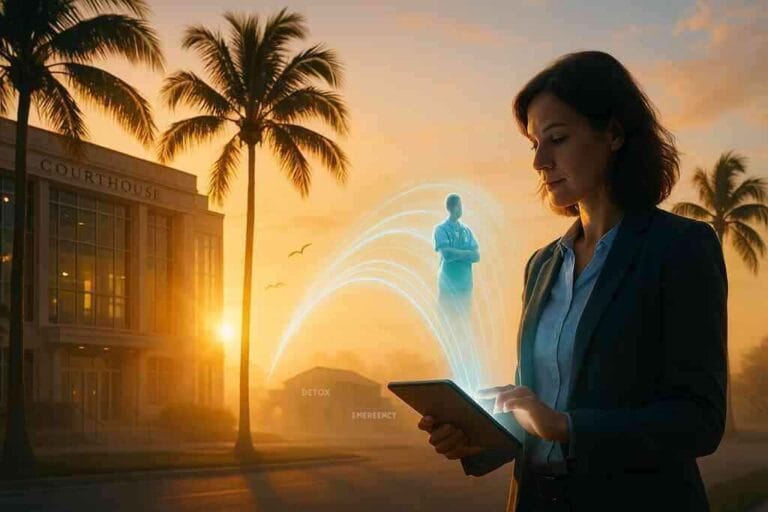Blog Category
Marchman Act and Legal Guidance
Browse our marchman act and legal guidance articles for expert insights, guidance, and resources from MarchmanAct.com.

How Marchman Act Addiction Treatment Navigates Florida Courts
Opening the Courthouse Doors to Recovery Paths The dual power of compassion and Florida civil procedures under the Florida Marchman…
Read Article
Marchman Act Addiction Treatment vs Baker Act Near You
Opening the Door to Involuntary Help: Unpacking the Marchman Act vs Baker Act Debate Near You Crisis crossroads when mental…
Read Article
What Is Marchman Act Addiction Treatment in Florida Courts
Unveiling the Legal Lifeline of the Florida Marchman Act Why Civil Commitment for Addiction Exists in the Sunshine State The…
Read Article
Understanding the Marchman Act Definition in Hillsborough’s Context
Awakening on the Hillsborough Frontline: Why Marchman Act Awareness Saves Lives The opioid wave and alcohol relapse trends reshaping Tampa…
Read Article
What Marchman Act Counseling Means for Orange County’s Clients
Opening the Orange County Pathway to Compassionate Court Guided Recovery Why Marchman Act Counseling Differs from Baker Act Paths Orange…
Read Article
Marchman Act’s Role in Liberty County’s Health Redefinition
Awakening Liberty County Health Narrative with the Marchman Act Liberty County substance abuse crisis on the public radar Liberty County’s…
Read Article
Ultimate Marchman Act Guide: Sobriety and Legal Notes Near You
Unveiling the Dual Pathway to Recovery and Justice Why the Marchman Act Florida matters for families today The Florida marchman…
Read Article
Top 5 Marchman Act Strategies for 2025 Transforming Legal Pathways
Awakening the Future of Florida Civil Commitment Pathways Why Florida Marchman Act demands innovation Florida families now navigate a fast-changing…
Read Article
Exploring Marchman Act’s Essential Role in Involuntary Treatment
Opening the Gate to Hope Understanding Involuntary Treatment Under the Marchman Act Why involuntary action becomes essential signs of severe…
Read Article
Comparing Marchman and Baker Act for Florida’s Recovery Success
Opening the Legal Gates to Recovery Why involuntary treatment Florida laws matter for families in crisis Florida parents, spouses, and…
Read ArticleAbout This Category
Understanding Marchman Act and Legal Guidance
Our marchman act and legal guidance articles provide expert guidance, practical advice, and the latest information to help Florida families navigate difficult situations. Each article is written by professionals with direct experience in addiction intervention and the Marchman Act process.
Whether you're researching options, preparing to file a petition, or supporting a loved one through recovery, these resources from MarchmanAct.com are designed to answer your questions and provide actionable steps.
Need Help with the Marchman Act?
Our team is available 24/7 to answer your questions and guide you through the process.
Call (833) 995-1007Free consultation • Completely confidential